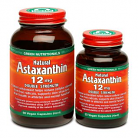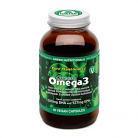Depression and Low Mood
Depression – treating mood blocks to Happiness
Happiness is a combination of pleasure, fulfilmentand meaning; and distinctly: freedom from anxiety and depression.
Up to 1 in 3 of our population will experience a mood disorder at least once during our lives, which is a major concern for happiness. Anxiety affects approximately 25% of us, depression 15%.
There are several causes of these chemical imbalances, including:
- Traumatic early life experiences
- Role modelling an anxious parent
- Life situations (social or financial problems)
- Blood sugar imbalances, mainly hypoglycemia
- Unhelpful thinking patterns and schemas
- Stimulant or drug use (including alcohol, caffeine and marijuana)
- Sleep deprivation and low melatonin
- Food allergies and intolerances (salicylates, amines, MSG, sulphites, additives, wheat, gluten and dairy being the most common)
- Over or under-active thyroid
- Testosterone dominance or deficiency
- Oestrogen dominance or deficiency
- Nutritional deficiency (particularly omega 3 essential fatty acids)
- Adrenal fatigue
- Insufficient methylation
- Excess histamine
- Pyroluria
- Porphyria
- Infections, including glandular fever viruses, yeast overgrowth and parasites
- Inflammation
- Toxicity (chemicals, heavy metals)
- Lack of exercise
- Lack of dietary protein
- Genetic susceptibility
It is generally accepted that depression is mediated by an imbalance of chemicals in the brain (neurotransmitters), such as serotonin, dopamine, endorphins, acetylcholine and GABA. Orthodox treatment of depression is generally aimed at modulating these pathways.
Most people experience a combination of these factors. The best recommendation is to consult a practitioner who can identify the individual contributing factors so that you can apply accurate solutions.
However, it may be helpful to try basic self-support.
- Eat enough protein. Aim for a palm size of protein at each meal (meat, fish, fowl, legumes, tofu or eggs), or supplement with a protein shake.
- Eat low glycemic carbohydrates, such as sweet potato, basmatirice, apples and wholegrainbreads and crackers. Small amounts with 1-2 meals per day can help to release serotonin and keep blood sugar balanced.
- Cut out sugar, caffeine, alcohol, and other drugs that are not prescribed by a medical doctor. Some people require a supported withdrawal process.
- Hydrate – with water and herbal teas. Ditch the stimulants and sugar.
- Exercise regularly – every day is ideal.
- Take omega 3 fish oil (if not allergic). This is required for nerve structures and neurotransmitter balance, and almost everyone requires supplementation for optimal neural function and mood.
- Counselling. Talking not only helps you to vent confidentially, but it is an opportunity to identify issues and gain skills to resolve them. You can improve your coping skills for example with cognitive behaviouraltherapy, through a counselloror with a good guide like Change Your Thinking, by Sarah Engelmann.
- Consult your complementary practitioner for evidence based solutions such as:
- Nutritional supplements magnesium, calcium, zinc, taurine, chromium and B complex. Magnesium powders contain many of these nutrients in one formula, and at adequate doses
- Zinc tally and supplementationNervineherbs such as John’s wort, oats, damiana, lavender, vervain
- Adrenal support adaptogenssuch as withania, licorice and Siberian ginseng
- 5-HydroxyTryptophan(precursor to serotonin)
- DL-Phenylalanine(precursor to endorphins)
- Dietary planning and detection of food allergy/sensitivities
- Referrals and testing for hormonal and other imbalances
- Massage
- Acupuncture
If the feelings run deeper, they may be linked to trauma and loss, which can shape our conditioned patterns and core beliefs (schemas) about the world. Addressing core beliefs helps to remove the emotional reactivity in trigger situations, and can have a longer and more permanent affect in relieving depression.
Updates - 24 October 2014
Szewczyk, B Kubera, M & Nowak, G (2011), ‘The role of zinc in neurodegenerative inflammatory pathways indepression’, Progress in Neuro-Psychopharmacology and Biological Psychiatry, Volume 35, Issue 3, 29 April 2011, pp: 693-701.
For a few years now we have known that depressed patients typically have low Zinc levels in their blood. Naturopaths often prescribe Zinc, knowing that it is an important mineral in the production of neurotransmitters. Now, increasing research is showing that Zinc’s effects on the immune system may also be relevant in depression. A lack of Zinc may contribute to the activation of the immune system and the resultant inflammation and neurodegeneration seen in the brain of those with the condition. Giving supplemental Zinc has shown benefits in treatment non-resistant and resistant patients. So are your Zinc levels up to scratch? Check with your Naturopath to see if you are getting enough in your diet or if you need to supplement.
| Products | Suggested Dosage |
| 1. Herbs of Gold Extra Strength St John’s Wort 3600 (30Tabs, 60Tabs) | 1 tab x 2 daily. |
| 2. Herbs of Gold Omega 3 Concentrate (200 caps, 400 caps) | 3 caps x 2 daily. |
| 3. Thompson’s Mood Manager (30 Caps, 60 caps) | 2 tab daily on an empty stomach. |
| 4. Nutra Life Magnesium Complete Calm Formula (180g) | 2 scoops per day |
| 5. Bach Rescue Remedy (10ml, 20ml) OR | As needed. |
| 5. Australian Bush Flowers Emergency Essence (30 mls) | As needed. |
| 7. Musashi L-Tyrosine (50g) | 1/2 - 1 tsp x 3 daily on an empty stomach away from food. |
| 8. Herbs of Gold B Complete Sustained Release (60 Tabs) | 1 tab with breakfast. |
NOTE: Consideration should always be given to individual requirements. Please consider seeing a qualified practitioner before commencing a new treatment protocol or when combining supplements with pharmaceutical medication.



















